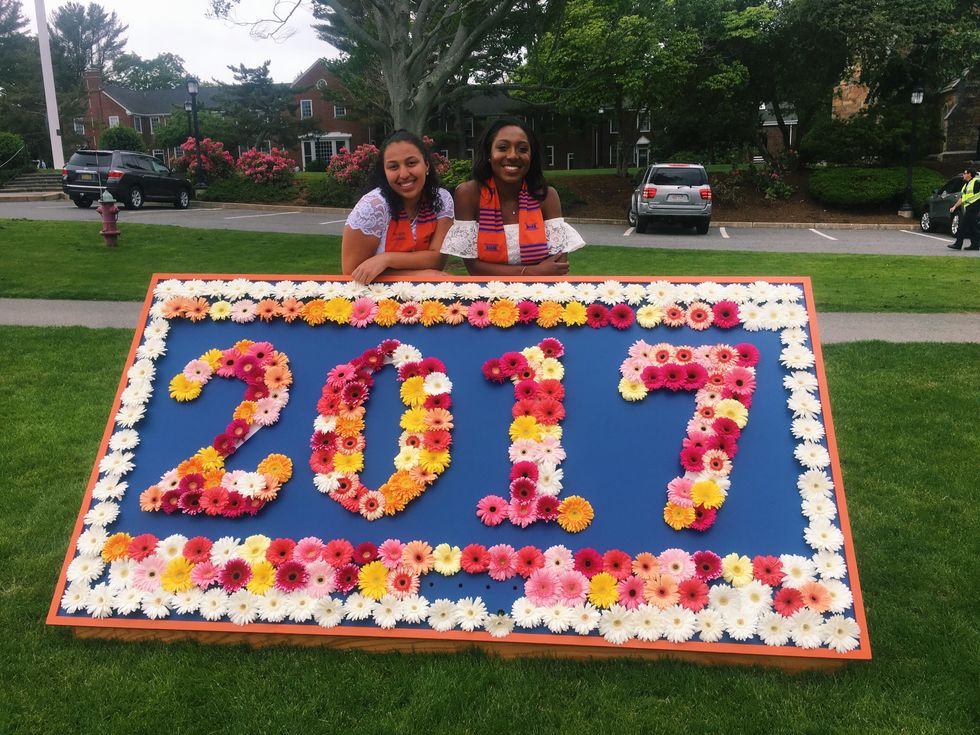In 2014, I decided to leave my town’s public high school to attend a local boarding school. The transition was definitely nerve-wracking, and many people did not understand why I chose to live away from home at such a young age, but I can easily say that it was the best decision of my life.
I have learned more in my short three years at boarding school about college life than I would have had I stayed home. Attending boarding school is a privilege, and not everyone is able to attend due to cost, family issues, and other factors. Students at boarding schools must recognize the privilege they have to learn such incredible life lessons at such a young age.
So without further ado, listed below are five of the lessons/skills that one is forced to learn during his/her time at a boarding school.
1. Time Management
Many people say that the hardest part of college is time management, but boarders will most likely master that by graduation. Boarders are in charge of balancing our assignments, sports, social lives, extracurriculars, etc. all while maintaining our general well-being. Our school is where we eat, sleep, and hang out with friends. Therefore, we are forced to recognize when we have time to hang out with friends, and when we have to hit up the library.
2. How to Develop Relationships with Faculty
In boarding school, members of the faculty are the closest things we may have to our parents. Since most faculty members live on campus, we are forced to break down the barrier between the classroom teacher and the adult who genuinely wants to mentor us.
For example, it’s not uncommon for boarders to be invited to faculty homes to discuss current events,watch a big game, or eat cookies. To other students, it may be odd or strange to eat dinner alongside your math teacher every night; however, to a boarding school student, it's a casual opportunity to ask for extra help, talk about current events, or just ask for advice. Our teachers also make sure to attend our sporting events or performances to cheer us on, and are seen walking around campus interacting with students.
We see faculty less of daunting figures who give us assignments and more as approachable guides who are at the school because they want to help us along the way. Our ability to see our teachers as more than just teachers helps us as we develop more organic relationship with professors in college.
3. Self-Sufficiency
Being at a boarding school means that we do not have parents available to help us 24/7. We have to do our own laundry, figure out our own meals on the weekends, and learn how to manage our money (so that we don't go crazy shopping)! Although our parents were usually one call away (except for the international kids whose family is in a different time zone), we were forced to make many tough decisions by ourselves. Through trial and error, we are able to learn many life skills and necessities.
We also were forced to be creative and innovative. After the dining hall closed at 7 p.m., we were only left with the food that was in our rooms. We learned how to make cereal a dinner, and how to spice-up ramen noodles. Moreover, on the weekends when there was nothing to do, we made up our own games and fun to get us by. Now in college, we will know how to prevent ourselves from starving and becoming bored to death.
4. How to Live With Other People
We learn how to live with people who are not our siblings, and sometimes with people with whom we don’t get along. High school years can be such an angsty time for everyone, so if we are able to handle living in a hub of angst, then we are more than likely prepared to live in more mature college dorms.
We learn about how our small habits may serve as inconveniences or annoyances to others. For example, while one may be used to waking up at 2am to have a late-night snack, s/he learns that the noise of eating popcorn may startle his/her sleeping roommate. By learning how to live with others before college, we are eased of the roommate arguments that could occur later.
5. How to Interact With People of Different Backgrounds
Boarding schools tend to have a large population of international students. If not, the school more than likely contains students from across the country. Unlike other schools where most of the students reside near the school, we live alongside people of different races, nationalities, cultures, and backgrounds. Just in four short years, our scope of the world widens greatly due to the conversations we have with people who think differently from ourselves.
With the diversity that the school brings, the students also naturally provide each other spaces to express and celebrate their heritage and backgrounds. With this safe space, students are welcome to spread awareness of inequalities, and to share their stories. We, thus, not only learn more about our own identity, but we are able to learn about other identities. This knowledge carries with us as we travel the world and continue to meet others.
I would not be the person I am today if I never attended boarding school. I am able to take these lessons I learned and apply them to the experiences and problems that I will face in college. While living away from our families (and for some, home countries)! at such a young age is a challenging transition, we are eased of the homesickness that many may face in college.






















